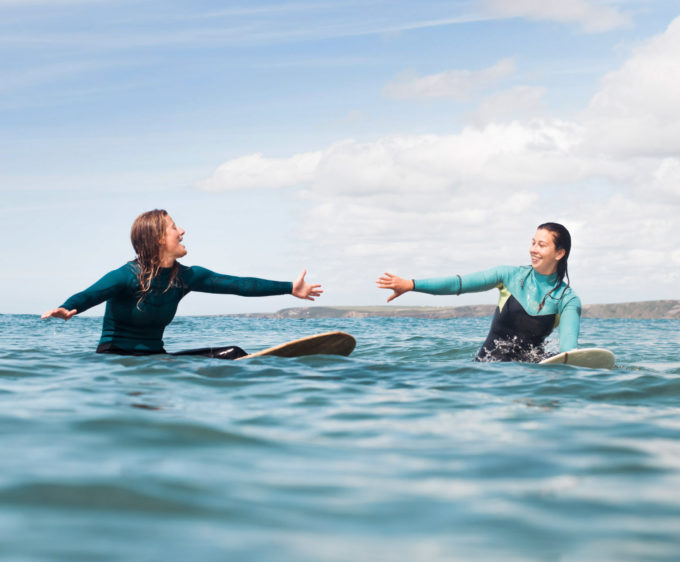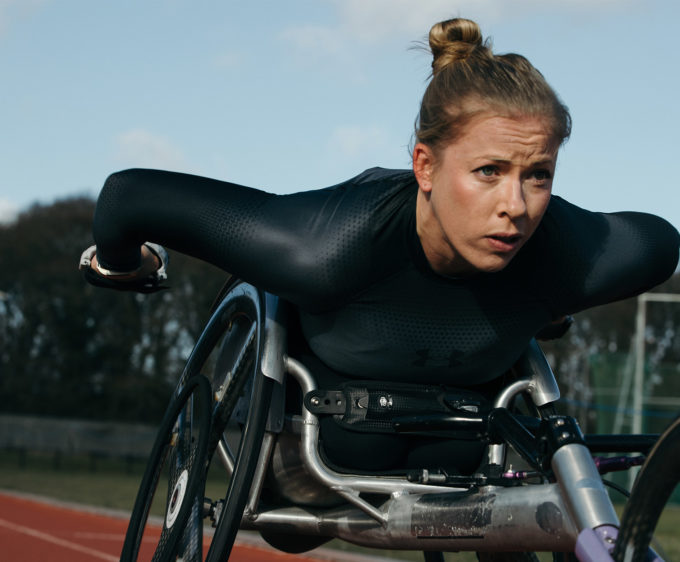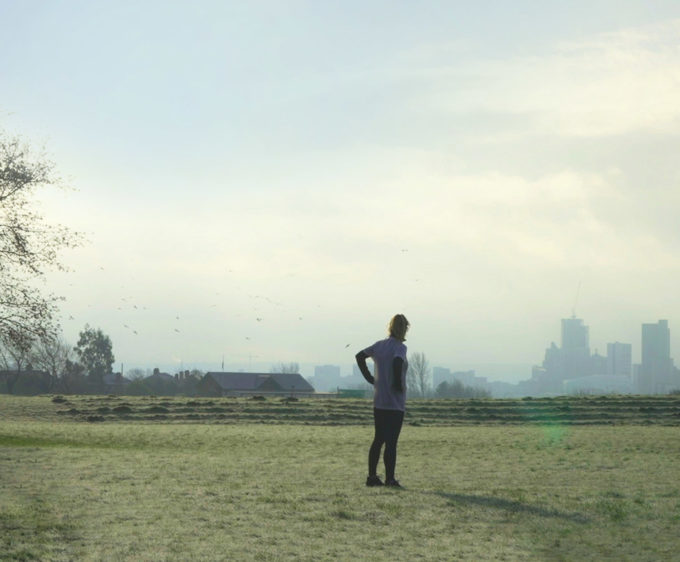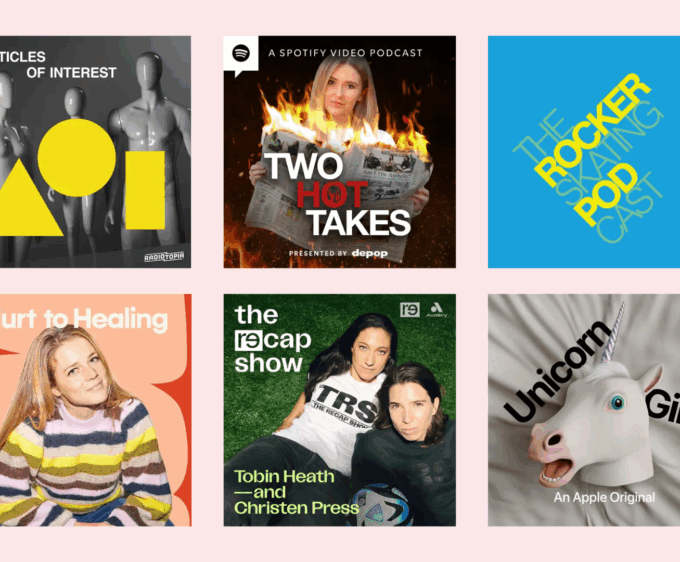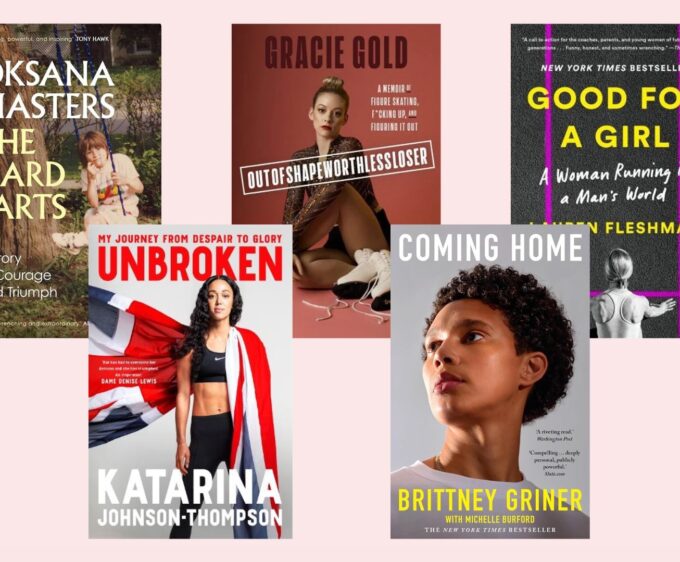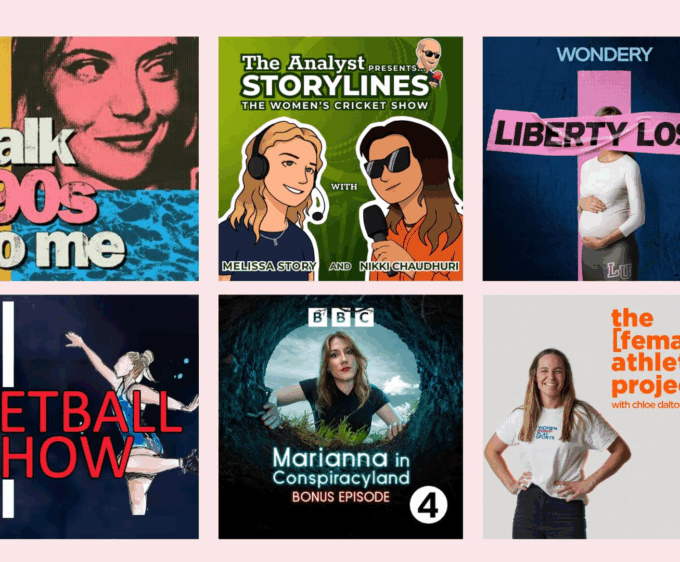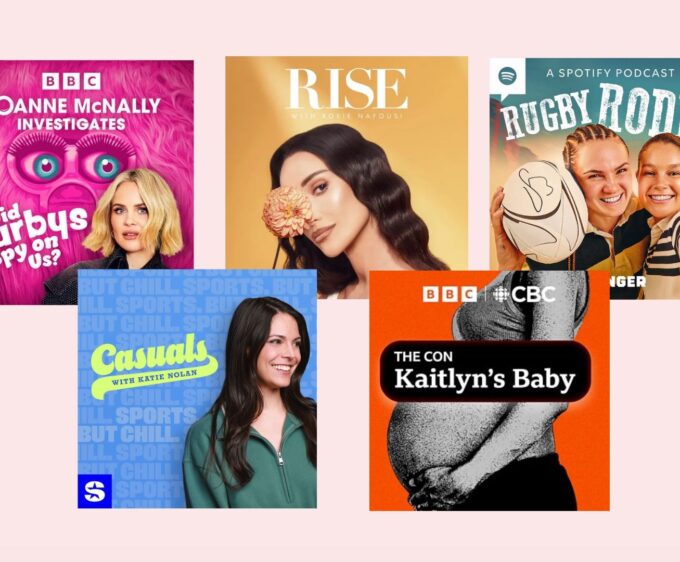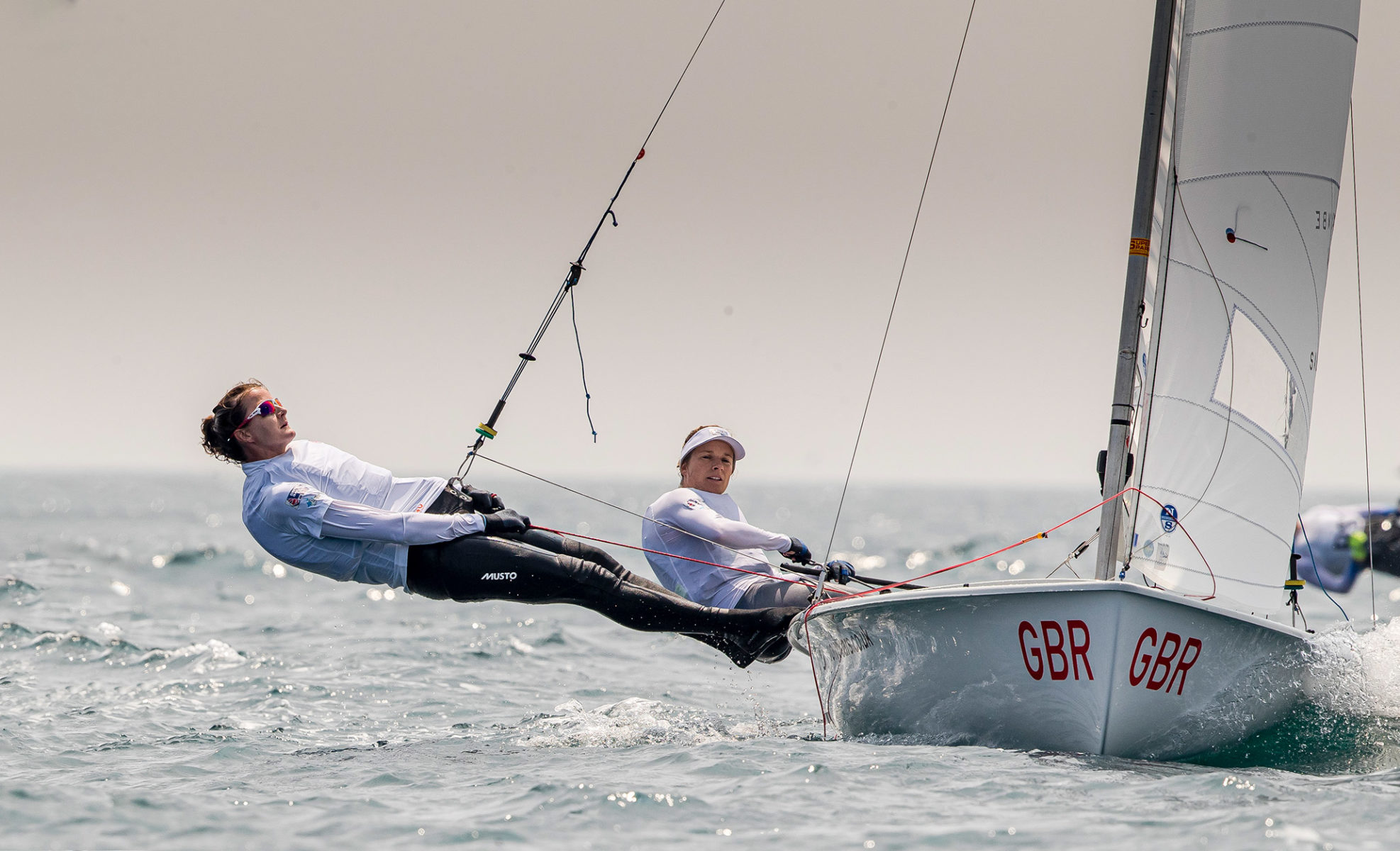
Making Waves To Protect Our Planet
Helping save the planet and reduce plastic waste isn’t going to be plain sailing for Olympic star Hannah Mills, but that’s her goal for the future
By Alice Barraclough
At 33, Hannah Mills is a record-breaking phenomenon: the most successful female Olympic sailor in history after winning gold with Eilidh McIntyre in the 470 at Tokyo 2020.“It’s mad, I can’t put it into words,” she says of her accolade. “It’s something I’ve worked for my whole life – well, since I was 11 and I realised sailing was in the Olympics.” Yet Hannah, one of Team GB’s flag bearers at the opening ceremony, who won gold in the class in Rio 2016 and silver at London 2012, isn’t just a symbol of girls’ unlimited potential in sports, she’s also using her platform to address the urgent issues of global climate change and the devastating effect of single-use plastic on the planet.
“I noticed how bad the problem was in Rio. I think it’s because of the landscape there. It’s very mountainous and all the rubbish funnels into a big bay and then it gets stuck because the entry or exit to the ocean is really small. So there was just lots of plastic on the beaches, in the waters where we were sailing, where we were launching our boats, in the marinas and it was just so sad – it was heartbreaking to see,” she says

“Then, once you see it there, you start looking everywhere. And, actually, it’s everywhere else as well, it’s just not quite as obvious. So that was a huge eye-opener. I just thought, holy moly, this is a global, massive problem and it’s getting worse and worse and worse,” she continues. “After the Rio Olympics, I had a bit of time off and I was thinking about what to do and ended up sailing again with Eilidh about nine months later, but I felt strongly that if I went sailing again, I wanted to use my platform to try and raise awareness about our plastic problem.” And so the Big Plastic Pledge was born: an initiative launched in 2019 to eradicate single-use plastic in sport. With the support of the International Olympic Committee (IOC), Hannah came up with nine simple pledges and asked fellow athletes to commit to three of them. The pledges included things such as using only reusable bottles, cups, lunch boxes and utensils and swapping plastic straws for metal ones. But juggling sailing alongside a sustainability initiative was no small feat. “Being the sort of person I am – anything I do I want it to be done as well as possible – I just felt so torn between wanting to put everything into the Big Plastic Pledge but equally, wanting to win another Olympic gold medal – I was like, ‘how on earth do you do both things?’”

Somehow she made it work. “I learnt to be strong at dictating how much time it took because it can get really obsessive – all the reading and research you want to do, onboarding other athletes and replying to all the people emailing through the website.” Now the Welsh sailor has another gold medal to add to her collection, perhaps she’ll have a little more time on her hands to spread the environmental message she’s so passionate about. “I felt like I was treading water balancing both the sailing and the Big Plastic Pledge until COVID hit and made us all stop. I suddenly had time to think, which was really good for me. So I reset my expectations for the Big Plastic Pledge and thought about how I could simplify it until the games were over,” she says.

Elite athletes often set goals before they know exactly how they’ll achieve them. In fact, when Hannah was just 14 she met the then Secretary of State for Culture, Media and Sport Tessa Jowell, who was working on the bid to bring the Olympics to London. Hannah says she was dared to go up to Jowell and say if London won the bid, she would win sailing gold. “Being a plucky little 14-year-old, I did go up and say that. And so when London was announced, I knew I wanted to go to the London games,” she says. This same mentality – of setting goals before you realistically know how you can achieve them – can arguably be adopted to address climate change too. “It kind of needs that mentality,” says Hannah. “We don’t have all the answers and solutions. It feels like an exponential problem because it’s just getting bigger and bigger – and so we need some serious big dreams and ambitions to solve it, without necessarily all the pieces of the puzzle in place.” This feeling of helplessness – and that climate change is out of our control – leaves many of us thinking ‘what’s the point?’ but Hannah says there are loads of points – and it’s going to take a combined effort, not just by athletes, but by individuals and businesses alike to create change.
“When people see you doing street clean or a beach clean or using a multi-use reusable bottle, and talking about why you’ve made these small lifestyle changes, that impacts somebody else, which impacts somebody else and the knock-on effect can be huge,” she says. “If everybody is aware of the problem and aware of what they’re buying, consumer power becomes power, and then big corporations have to change and we can start to put pressure on governments to impose much stricter laws.” In sailing, that means saying no to plastic packaging. “Everything we buy comes packaged in plastic, including our boats, and most of the time there’s no need,” she says. “It doesn’t need to come in anything, we can just pick it up as it is. We don’t need our boats or masts to come wrapped in plastic.
“One thing we haven’t yet got the solutions for is branding and stickers. Obviously, being in the water, it’s challenging to find something that isn’t plastic or plastic-based that sticks – and you don’t want to be creating stickers that are just going to fall off directly into the ocean, because that’s pretty bad too,” she adds.

Ambitions
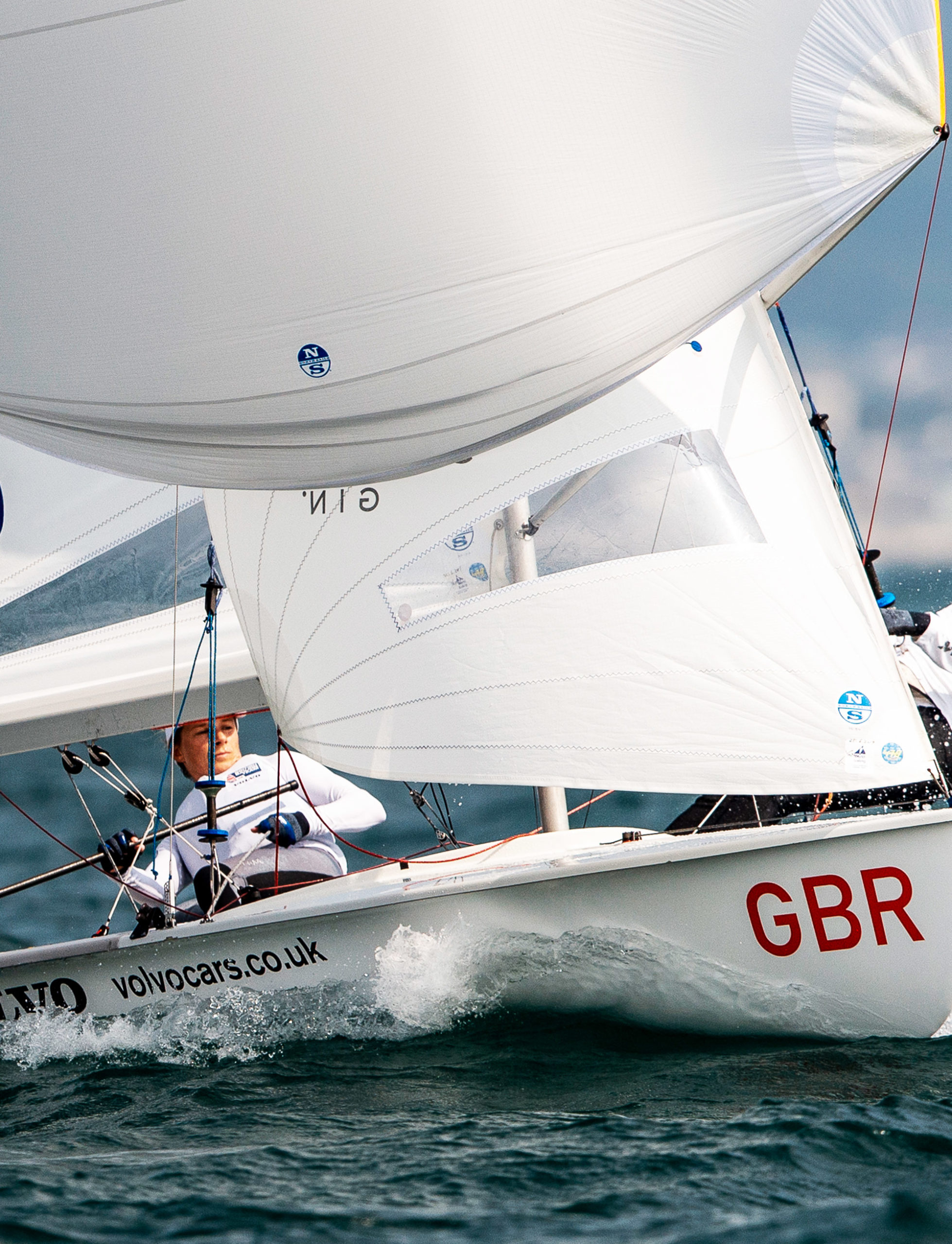
“We also go through quite a lot of equipment – a lot of sails – so finding new homes for them was something I really wanted to do. We sent a lot of them to schools that needed sails for different boats and then upcycled others into bean bags or tote bags.” Of course, while there is no single business or law that can solve the environmental crises alone, athletes and sports teams do hold a certain amount of influence. Just think of what footballer Marcus Rashford has done in the last year for child food poverty, or back to when Billie Jean King beat Bobby Riggs in the famous “Battle of the Sexes” tennis challenge match. Few sectors can be as culturally influential as the sports industry – so Hannah wants athletes to take the lead and show their support for a cleaner, more sustainable future.“Athletes, for whatever reason, have the ability to inspire across boundaries that maybe weren’t possible to cross through other means,” she says.
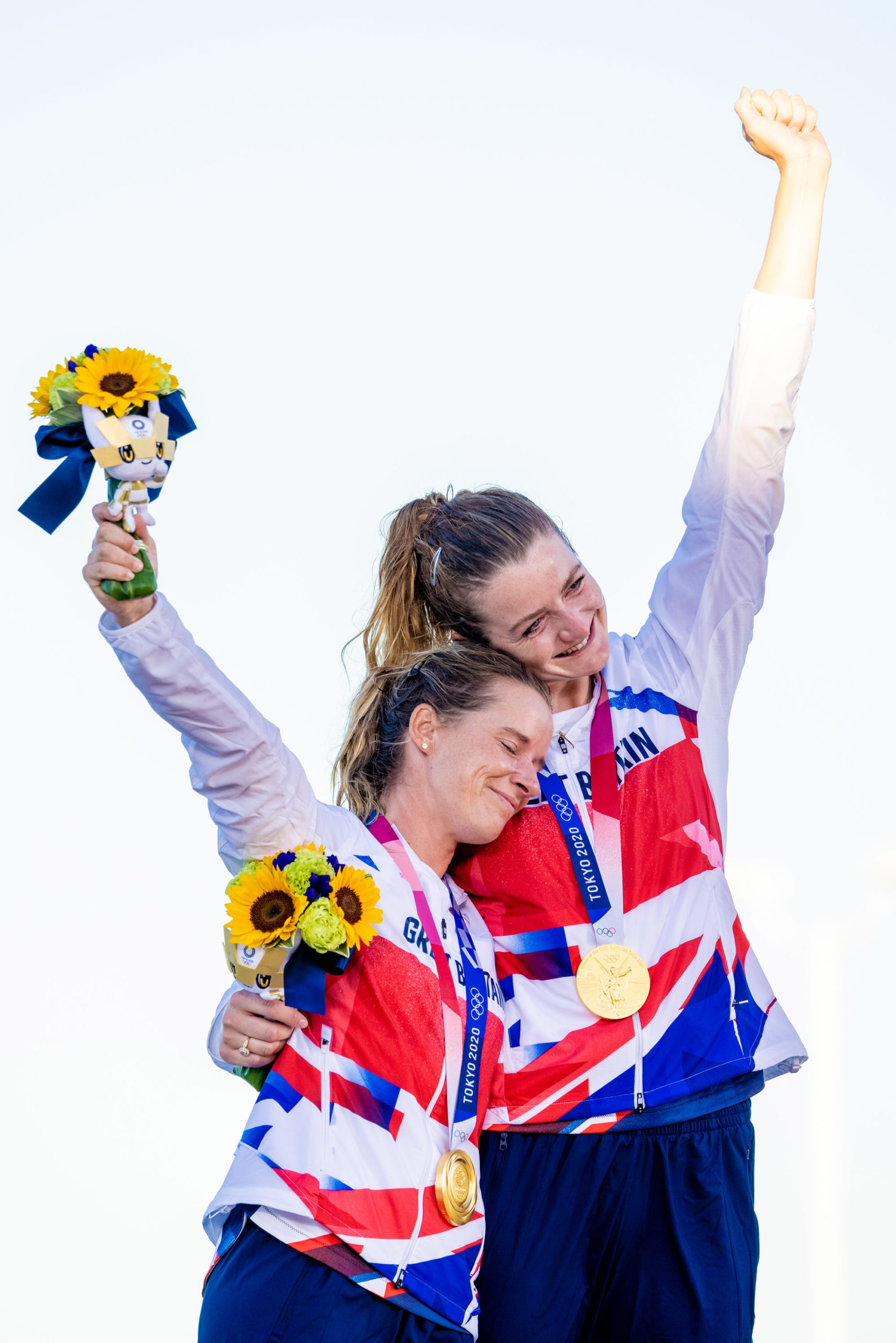
“Just look at the power of the Olympic games and the number of people it reached and touched in all corners of the globe. I don’t know if there’s anything else that manages to do that. I think using huge sporting events and athletes to carry messages, and speak up and put pressure on big businesses and governments can make a difference – and can make the change happen faster. Because it needs to happen faster – it’s such a shift that’s required to solve this problem of climate change, so it’s going to take some pretty important special athletes to make it happen.” Some sports are arguably more aware of their impact on the planet than others. And while dozens of sports teams are adopting energy efficiency measures, renewable energy, recycling and healthier food – and fans are therefore being educated about environmental change, there still remains a lot to be done. Take running events such as the London Marathon, for example. While it raises lots of money for charity, it also generates lots of plastic waste, particularly plastic water bottles discarded by runners. In 2018, the London Marathon used over 919,000 plastic bottles. In 2019 the plan was to swap 200,000 of those for edible seaweed pods.

“I didn’t hear much about how good or unsuccessful the pods were, but I think it shows that we’re in a good place in terms of awareness. People might not be making the right choices, because of their lifestyle and being on the go, but they are aware of the problem. It’s solutions that we need to find and I hope through sport and big sporting events like the London Marathon we can trial innovative ideas like the pods. They might be good, they might be bad, but at least they’re being put on this platform where everyone can see.” Hannah now intends to work closely with the IOC and work on their sustainability objectives for Paris – pushing for a single-use plastic-free Olympics. Whether she’ll be competing at Paris remains to be seen – for now, she’s hung up her buoyancy aid and salopettes. “Paris is a tiny speck on the very distant horizon of possibilities. It’s very unlikely, but never say never.”
In every question she answers, Hannah shows something of her winning mindset that makes her not only an Olympic champion but also an enthusiast for life and an advocate for both our planet and young female sailors. She’s a pretty inspiring individual. Her message to girls who want to get into sailing? “You are going to get wet and you are going to get cold at times, and it can be quite gritty. Sport, in general, is struggling with female participation, and sailing is almost like the next level in a way because of what’s involved,” she says. “There are challenges for young girls who want to sail. I remember getting my period when I was at a competition and it was hard and stressful – you’re out on the water in a wetsuit, with no access to toilets, it’s not easy. “But at the same time, it is the most amazing sport for kids – male or female – because you get so much independence and confidence to take into other areas of life, just by being out in the elements, on the ocean, away from your parents. It’s magic.”

Photography thanks to World Sailing for images from the 2020 Tokyo Olympic Games.
Editorial Design Root


